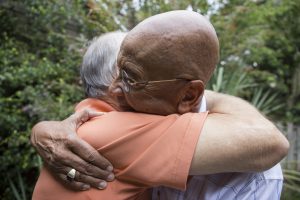 Often times disasters make us feel anxious or afraid. People talk the tale of woe on the street, at the grocery store, on the TV, radio and the internet. Even when the threat of a disaster is remote, we still worry because should an unfortunate event occur, we feel like we will be forced to make decisions quickly. We tend to ‘awfulize’.
Often times disasters make us feel anxious or afraid. People talk the tale of woe on the street, at the grocery store, on the TV, radio and the internet. Even when the threat of a disaster is remote, we still worry because should an unfortunate event occur, we feel like we will be forced to make decisions quickly. We tend to ‘awfulize’.
- What if I panic?
- What if I do not know what to do?
- What if I make the wrong decision?
- What if someone takes advantage of me?
- What if no one checks in on me?
- What if I don’t have enough money, or food, or water?
- What if . . . ?
Disasters are something we cannot control, but our personal life is different. The more prepared we feel, the more in control we feel. The more in control we feel, the less stress we will experience. The less stress we experience, the more positively our health and well-being will be affected. The more positively our health is affected, the better our quality of life during this period of potential change.
Consider the following steps to help reduce your stress, should a disaster occur:
Keep in touch. Maintain contact with friends and family. Just having a casual conversation with a friend or family member goes a long way to lifting your spirits and reducing stress.
Know your neighbors. If you do not already, now is a good time to get to know your neighbors. It’s a time to learn who you can turn to during a time of need, and to let others know that you are available to help as well. Take a stroll to say hello to those in your immediate vicinity. Ask for their contact information and that of a close friend or family member. Provide the same for them.
Do one thing at a time. Multi-tasking in itself can be stressful. We may get wrapped up in a new project before we finish the first and it may be that the first project or task was more important than the additional one or two or three we took on. Focusing on one thing at a time helps reduce tension.
Maintain your regular sleep schedule. When we are well rested, we are clear headed. Confusion is less likely to set in. After a good night’s sleep, we have more energy to take on the tasks at hand. In addition, we may not sleep as well if we have to be moved to a temporary shelter.
Eat regularly and eat well. Said simply, good nutrition contributes volumes to keeping our mind and body healthy.
Exercise is a stress-buster. Keep your usual schedule. Routines help us stay focused.
Unfortunately many things are out of our control but the more we can do to keep a pulse on what we can control, the more likely we will be able to keep a clear head if the situation calls for quick action.
 0
0
